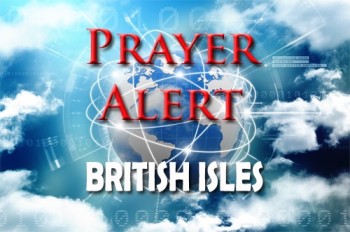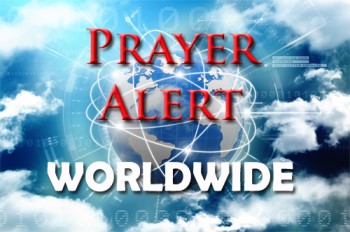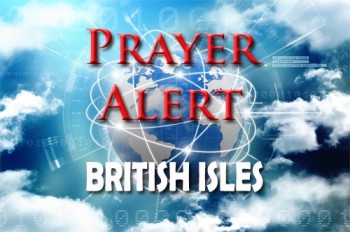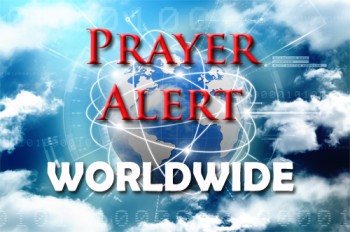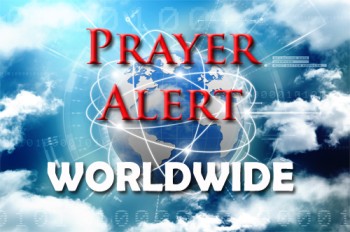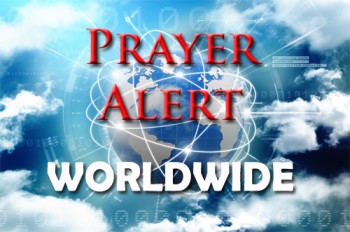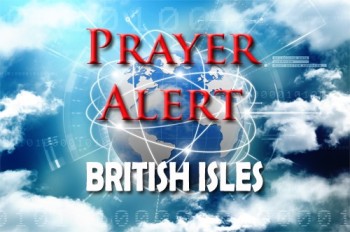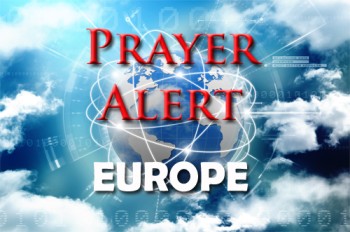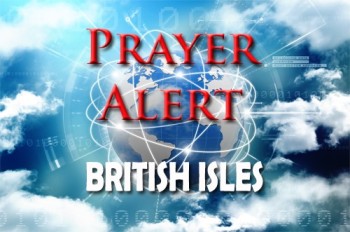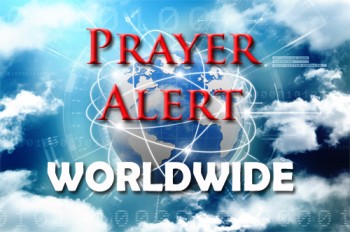Displaying items by tag: violence
London: three grim days see stabbings, murder investigation, shooting, collisions
A series of violent incidents across London in late January has left communities shaken, with multiple stabbings, a confirmed murder, a shooting and several serious road collisions reported within three days. Among the most distressing cases are a 10-year-old boy fighting for his life after being struck by a car in Stanmore, and a 17-year-old stabbed in a south London park. Police have also charged a man with the murder of a 58-year-old woman in Ilford, while other knife and gun attacks remain under investigation, with some suspects still at large. The incidents highlight the persistent human cost of violence in the capital, even though recent data suggest that overall homicide and knife crime levels have declined in recent years. Faith leaders and community campaigners stress that reductions in violence are the result of sustained grassroots engagement, mentoring, policing measures and legislative change. However, these events underline the need for continued vigilance, compassion and prevention.
Mozambique: 100,000 forced to flee after attacks by armed groups
Nearly 100,000 people in northern Mozambique have fled in recent weeks as armed groups have stormed their villages, often at night. They have burnt homes, killed civilians, and forced families to escape without belongings or documents. Nampula province now faces a fourth major influx of displaced people in recent months, pushing already fragile host communities beyond capacity. Schools, churches, and open spaces are overflowing, while humanitarian workers are struggling to respond to simultaneous attacks in many districts. Violence linked to the so-called IS has already displaced more than 1.3 million people since 2017, and now threatens communities which have previously been safe refuges. UNHCR warns that current funding covers only half of what is required, and needs will rise sharply into 2026. Lacking adequate shelter, food, and water, some families are returning to unsafe areas simply because overcrowded conditions leave them no other choice.
Liverpool: boy arrested after attack on firefighters and police
A 14-year-old boy has been arrested after fireworks were fired at firefighters and police officers attending a blaze at Knowsley Heights, near Liverpool. Emergency services were called shortly before 7pm after reports of fireworks being directed at the high-rise building. Fire crews quickly extinguished a blaze on a third-floor balcony, but during the operation fireworks were launched towards emergency workers. A female police officer suffered a minor leg injury, and a teenager was also treated for firework burns. Merseyside Police confirmed the boy was arrested on suspicion of arson with intent to endanger life. Chief inspector Kevin Chatterton condemned the 'disgraceful' attack, saying it was only by sheer good fortune that no one was seriously injured. Knowsley Council leader Graham Morgan praised the professionalism of emergency services and vowed to hold those responsible to account. The fire service urged the public to respect first responders, warning that violence against them will not be tolerated.
Tanzania: unprecedented level of protest after landslide presidential election
The recent election which saw president Samia Suluhu Hassan win with 98% of the vote has exposed deep cracks in Tanzania’s democratic foundations. The landslide result - achieved amid opposition arrests, media restrictions, and reports of violence - has drawn widespread criticism from observers and foreign governments. What followed was unprecedented in Tanzania’s history: mass youth-led protests erupting across major cities, demanding electoral justice and democratic reform. The unrest reflects a broader generational awakening in Africa, where frustration with corruption, repression, and economic inequality is driving young citizens to demand accountability. With around 77% of the population aged under 35, the country’s future hinges on how leaders respond to this rising tide of civic resistance. Despite the violence and censorship surrounding the protests, they reveal a powerful truth: citizens are no longer content with symbolic democracy. Tanzania’s youth are asserting their right to shape their nation’s destiny. Going forward, the demand for a new constitution should be the priority.
Brazil: at least 64 dead after massive law enforcement operation
At least 64 people, including four police officers, have been killed during a massive law enforcement operation in Rio de Janeiro - the deadliest in the city’s history. Governor Claudio Castro hailed the raids as a decisive blow against organised crime, but the high civilian toll has sparked national and international alarm. Operation Containment targeted the powerful Comando Vermelho gang, deploying 2,500 officers with helicopters and armoured vehicles across the Alemao and Penha favelas. Bystanders were reportedly caught in the crossfire, reigniting debate over police tactics, human rights, and the heavy cost of Brazil’s drug war. For many residents of Rio’s poorest neighbourhoods, the tragedy underscores a grim reality - they are trapped between violent gangs and aggressive law enforcement. Human rights groups have questioned the timing of such a large-scale operation, less than two weeks before the UN climate summit COP30 begins. As Brazil heads for a national election in 2026, the threat of criminal violence and drug trafficking is expected to take centre stage.
Angola: nobody wants to talk about July protests
In July, protests over fuel price hikes erupted across Angola, paralysing parts of the capital Luanda and spreading to other provinces. Sparked by a taxi drivers’ strike, these demonstrations quickly turned violent, leaving at least thirty dead and thousands arrested. Many residents now fear speaking openly, wary of reprisals. The unrest exposed deep social and economic inequalities in the oil-rich nation, where youth unemployment stands at 54% and over a third of the population survives on less than £1.50 a day. Young people, frustrated by poverty, corruption, and lack of opportunity, led the protests, which sociologists describe as a response to decades of misgovernance since the civil war ended in 2002. President João Lourenço condemned the violence as foreign manipulation but faces criticism for failing to diversify the economy or curb high inflation. As Angola prepares to celebrate fifty years of independence, many fear further unrest before the 2027 elections if systemic issues remain unaddressed.
More than 500 arrested at Notting Hill Carnival
This year’s Notting Hill Carnival saw more than 500 arrests over two days, a sharp rise from 349 in 2024. Police deployed over 7,000 officers daily, supported by CCTV, knife searches, and live facial recognition technology, which directly led to 61 arrests, including a registered sex offender, a machete attacker, and a fugitive wanted for a decade. While four stabbings occurred, none were fatal - a reduction in serious violence compared to recent years when murders took place. Arrests included 167 for drugs, 50 for offensive weapons, 21 for sexual offences, and 55 for assaults on police, with two officers requiring hospital treatment. Deputy assistant commissioner Matt Ward praised both proactive policing and carnival organisers for discouraging violence. Despite improvements, concerns remain over crowd safety and overcrowding risks. An independent review is expected to report in October.
France: Macron admits violence against Cameroon independence movement
Emmanuel Macron has publicly acknowledged the violence committed by French forces in Cameroon during and after the country’s independence struggle from 1945 to 1971. A joint report by Cameroonian and French historians has detailed how France’s colonial authorities and army used severe repression, including mass killings, internment camps, and support for brutal militias, leading to tens of thousands of deaths. Macron named four independence leaders killed during French-led military operations and accepted France’s responsibility, but stopped short of offering an apology or addressing calls for reparations. Cameroonian responses have been mixed: some see acknowledgment as a positive step, while others say it is insufficient without concrete acts of justice. The report followed years of pressure for France to confront its colonial history, and Macron has taken similar steps regarding atrocities in Senegal, Rwanda, and Algeria, though often without formal apologies. The admission opens the door for further research and debate about France’s colonial legacy and reconciliation.
Man found guilty of murdering teenager and three attempted murders
Marcus Arduini Monzo, 37, has been found guilty of murdering 14-year-old Daniel Anjorin and three attempted murders during a horrific sword rampage in Hainault, north-east London. Suffering from a cannabis-induced psychosis, Monzo launched a twenty-minute spree in April 2024, beginning with driving his van into a pedestrian before attacking several victims with a 60cm samurai sword. Daniel, on his way to school, was brutally killed in what a witness described as a chilling act of 'delight’. Monzo also wounded two police officers and a couple in their home, where he demanded to know if they believed in God. Though he claimed memory loss and diminished responsibility, the court ruled that self-induced intoxication was no defence. The trial revealed Monzo’s disturbing online history, including far-right and conspiracy-related content. The jury also heard he had previously killed his pet cat before the attacks.
Sudan: new wave of refugees pour into Chad after RSF atrocities
Over 18,500 Sudanese refugees have fled into eastern Chad in the past two weeks, following devastating attacks on the Zamzam displacement camp and the city of al-Fasher in Darfur. The 11 April assault by Sudan’s paramilitary Rapid Support Forces (RSF) left at least 400 dead in Zamzam after months of starvation and siege. Eyewitnesses report widespread atrocities including executions, torture, and sexual violence. The RSF destroyed the camp’s only medical centre, killing nine aid workers, and burned large sections of the camp. Once home to 500,000 people, Zamzam is now nearly abandoned. Many fleeing refugees, including children and pregnant women, are severely malnourished and traumatised. Chad, already hosting 1.3 million refugees - nearly 800,000 from Sudan - is overwhelmed and struggling to provide adequate shelter, food, and medical care. UNHCR officials, fearing more suffering ahead as the humanitarian situation deteriorates rapidly, are calling for urgent international assistance and intervention.
